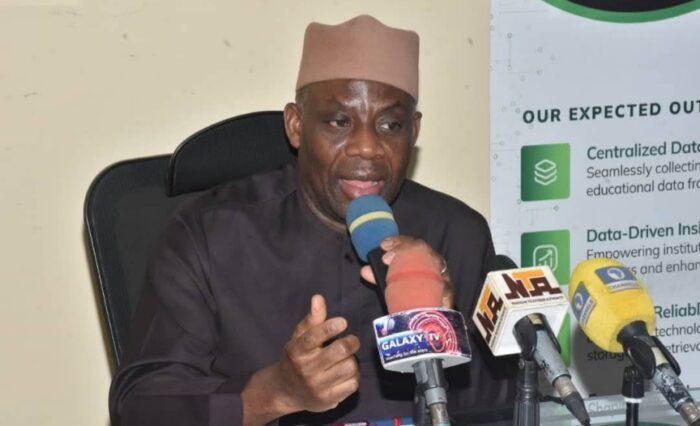The Federal Government has pegged the minimum age for admission into tertiary institutions in the country at 16 years, with a vow to sanction any institution that attempts to circumvent the rule by altering age records.
The Minister of Education, Dr Tunji Alausa, who pegged the admission age at the 2025 policy meeting of the Joint Admissions and Matriculation Board (JAMB) yesterday in Abuja, noted that the decision reflects a balance between cognitive maturity and academic preparedness of students.
Alausa who insisted that the age was non-negotiable, however added that provisions existed for clearly documented and justified exceptions like gifted children with accelerated educational progress.
The Minister also unveiled new measures to curb the scourge of examination malpractices, which he described as a “cancer” that was undermining merit and eroding confidence in Nigeria’s education system.
In this vein, he announced the establishment of a Central Examination Malpractice Unit within the Federal Ministry of Education, noting that this would be chaired by the Permanent Secretary in the ministry, Abel Enitan.
According to him, the unit would serve as a national clearing house for documenting and reporting malpractices across all levels of education. He said: “This central database will be accessible to all institutions. It is our hope that this will reduce the tendency to engage in malpractices, as offenders will be appropriately tried under the Exam Malpractices Act.”
On admission processes, the minister has declared that any admission into tertiary institutions conducted outside the Central Admissions Processing System would be deemed illegal, warning that institutions and individuals involved in such practices would be prosecuted and severely sanctioned.
CAPS, which was introduced in 2017, automates admission process to eliminate human interference and administrative bottlenecks. He said: “Any admission conducted outside CAPS, regardless of its intentions, is illegal.
Both institutions and the candidates involved in such practices will be held accountable “Sanctions may include withdrawal of institutional assets and prosecution of culpable officers or governing council members.” Alausa also confirmed the government’s support for WAEC and NECO to adopt computer-based testing to curb malpractices.
Meanwhile, the Joint Admissions and Matriculation Board (JAMB) alongside heads of tertiary institutions and other key stakeholders have fixed the minimum admissible scores for the 2024/2025 academic session into Nigerian universities at 150, while polytechnics and colleges of education will admit candidates from a baseline of 100.
At the 2025 JAMB policy meeting held yesterday in Abuja and chaired by the Minister of Education, Alausa; Registrar of JAMB, Prof Ishaq Oloyede, emphasised that the approved scores were the minimum thresholds, stressing that no institution was allowed to go below them.
Oloyede who maintained that the policy decision was aimed at ensuring fairness, access, and quality across the board, added that the policy meeting also reaffirmed the centrality of institutional autonomy in admissions, but within a framework that promotes national standards.















